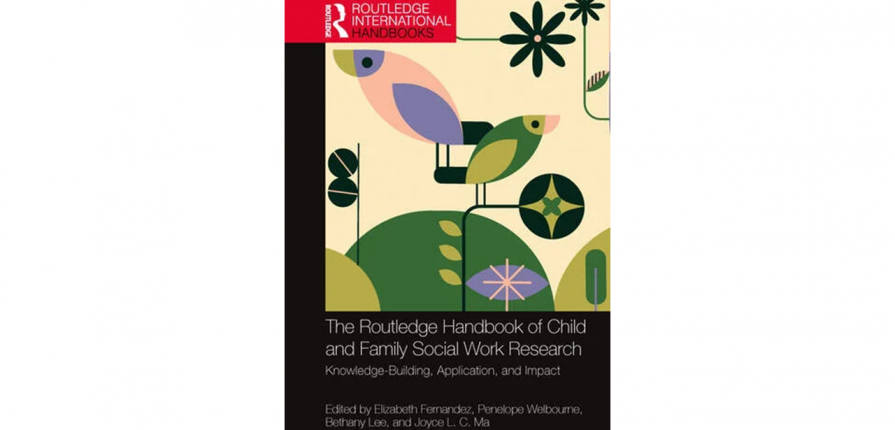NEW CHAPTERS: Professors Marit Skivenes, Jill Duerr Berrick, Neil Gilbert, Tarja Pösö, and June Thoburn have authored two chapters in the book The Routledge Handbook of Child and Family Social Work Research – Knowledge-Building, Application, and Impact, edited by Elizabeth Fernandez, Penelope Welbourne, Bethany Lee, and Joyce L. C. Ma. Their chapters explore crucial aspects of global child protection systems and adoption from care.
The Handbook offers a comprehensive resource for students, educators, and practitioners in social work, designed to deepen understanding of research into child and family welfare interventions. Here’s a breakdown of their chapters:
Developing a Global Typology of Child Protection Systems
Authored by Jill Duerr Berrick, Marit Skivenes, and Neil Gilbert, this chapter presents the global typology framework for analyzing different child protection systems across the globe. The authors base their chapter on the Oxford Handbook of Child Protection Systems from 2023. In this book it is distinguished between five key types of protection systems, each shaped by categories of risk factors. These include Protection against child exploitation, Protection against child deprivation, Protection against child maltreatment, Protection focused on child well-being, and Protection of child rights. This typology aids in understanding how different countries structure their child protection systems and what drives these differences.
Adoption from Care – Evolving Directions in Policy and Practice from a Comparative Perspective
In this chapter, Tarja Pösö, Marit Skivenes, and June Thoburn examine how policies related to adoption from care are shaped by governments and professionals. The chapter is based on their edited book Adoption from care: International Perspectives on Children’s Rights, Family Preservation and State Intervention from 2021 that compares practices in different countries and discusses how decisions are made when children cannot be returned to their biological parents.
Overview of the Handbook
This handbook serves as an essential guide for anyone involved in child and family social work. It is divided into six sections, each exploring critical topics in the field:
- The Context of Child and Family Social Work Research
- Preventive and Reparative Responses to Children and Families
- Child Maltreatment: Causes, Consequences, and Responses
- Alternate Care as an Approach to Safeguarding Children
- Intervention: Therapeutic Responses to Vulnerable Children, Youth, and Families
- Child and Family Social Work in the Global Context
The 52 chapters, authored by experts, offer important insight into a variety of topics, from child welfare and protection to family interventions and adoption, as well as insights into the social, psychological, and legal contexts of childcare. It also explores innovative research methods, making it a must-read for social work professionals and policymakers.
Published by Routledge, The Routledge Handbook of Child and Family Social Work Research is available for purchase here and promises to be an invaluable tool for guiding evidence-based interventions in child protection and family welfare practices.

